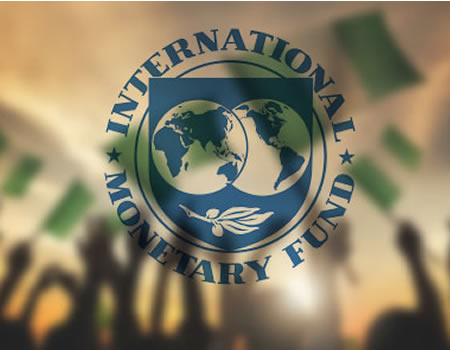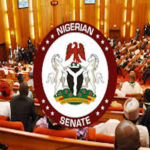International Monetary Fund (IMF) Wednesday released a new World Economic Outlook for July 2019, projecting Nigeria to grow by 2.3 percent for the year.
The July update revised downward, the Fund’s projection for global growth to 3.2 per cent in 2019 and 3.5 per cent in 2020.
This contrasts to the forcast by Central Bank of Nigeria (CBN), which put growth at 2.7 per cent.
CBN Governor, Godwin Emefiele while reading the communique of Monetary Policy Committee (MPC) on Tuesday said “output growth in 2019 is expected to remain weak, peaking at 2.27 per cent, while inflation is projected at 11.37 per cent by the CBN staff projections by end-2019.”
It should however, be note that Wednesday was the third time IMF reviewed Nigeria’s growth forecast for 2019.
In in 2018, it said economy will grow at 2.3 percent in 2019 but reviewed it downwards to 2.0 per cent in January this year and again in April, the Fund effected an upwards review of Nigeria’s economic growth rate projection to 2.1 per cent.
Globally, the Fund explained that its modest revision of 0.1 percentage points for 2019 and 2020 relative to its projections in April, came on top of previous significant downward revisions.
The revision for 2019 reflects negative surprises for growth in emerging market and developing economies that offset positive surprises in some advanced economies.
Growth is projected to improve between 2019 and 2020. However, close to 70 per cent of the increase relies on an improvement in the growth performance in stressed emerging market and developing economies and is therefore subject to high uncertainty.
Global growth is sluggish and precarious, but it does not have to be this way because some of this is self-inflicted.
Dynamism in the global economy is being weighed down by prolonged policy uncertainty as trade tensions remain heightened despite the recent US-China trade truce, technology tensions have erupted threatening global technology supply chains, and the prospects of a no-deal Brexit have increased.
The negative consequences of policy uncertainty are visible in the diverging trends between the manufacturing and services sector, and the significant weakness in global trade.
Manufacturing purchasing manager indices continue to decline alongside worsening business sentiment as businesses hold off on investment in the face of high uncertainty. Global trade growth, which moves closely with investment, has slowed significantly to 0.5 per cent (year-on-year) in the first quarter of 2019, which is its slowest pace since 2012.






